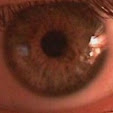about my understanding, reading, writing, and "speaking" English, how did this all start?
But, above all, why?
Why do certain people just can't manage to learn foreign languages, while others can easily understand them, and seem to be more "open" and fast in this learning process?
In fact, I know that my "first" language is just one language that I happen to know because I was born in this particular country; it's the very same for all of us, at the bottom of the sky.
Yet the human mind seems to go idle after a certain age, to lay down on its early knowledge of the world, which is more like a building -a library- than what it should be, a vehicle for travelling in different areas of knowledge. So, when I was a child I learned how to speak, read and write Italian; I did that on my own, by reading comics; when they asked me which other language I would have liked to learn at school I choosed English, but there was no more room for me there, hence I had to learn the gayest of all languages, French. I began to buy American expensive magazines about cinema when I was about seventeen; in fact, i've never stopped to learn the language I really wanted to learn.
Around my thirties, I was able to read a book such as A brief history of time, (along with The elegant universe, the only English paper books I've ever happened to read) while I didn't understand most of the dialogues in English/American movies; I just had to read books like Hislop's The two Babylons and one of my favourite reading ever, The book of the damned by Mr. Charles H. Fort. Later I've read and translated for my fellow Italian netizens the most interesting The emperor wears no clothes by the late Jack Herer (still online here in my translation). I started to watch anglophone movies just only in 2007, and since then I've increased enough my knowledge to understand most of the speaking both in American and British English, while enlarging my personal dictionary day after day, with the help of subtitles, and despite my personal antipathy for how American people handle the elegant, noble Britons' language with their munching-rolling-spewing words. Actually, I could say I'm really fond of English, I do love it, but I can barely stand most of the American speakers.
-------[after the course-----------
It is indeed another world. And of course, any and every logosphere is a world apart, on the linguistic international scenario; it is terminology and jargon, idioms and dialects and accents and a whole zeitgeist (as for the Eng. ground, derived from the verb to grind, defines the most basic level of this argument where the very same noun can be translated in Italian terra -- the same name for the whole planet) which was in fact born and is still living through a living language, defining social classes, schools (or perhaps herds) of thought, mind boundaries and borders that could be more difficult to trespass than the material ones; and my impression is that any and every speaker has got his own personal logosphere (as a possible individual expression of a possible phenotype, in a nativist point of view) in which the mental process of learning another language is that of discovering ANOTHER WORLD; not the "new" one, but from the same "old" one we southerners live in, we can still enjoy the sense of cold nobleness, imperial elegance, and eventually we could find out the reason why the British (Linguistic) Empire still rules the world.


Nessun commento:
Posta un commento